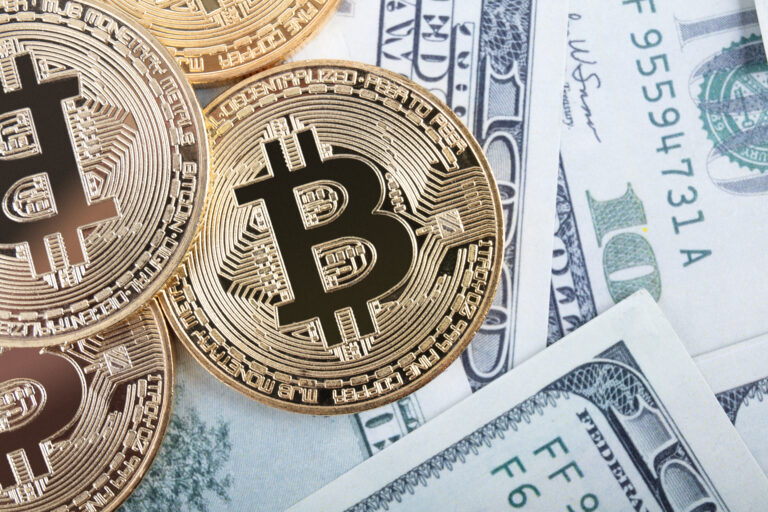When regional banks first started showing risks of failure in March, Bitcoin (BTC-USD) initially fell sharply. However, BTC and other cryptocurrencies bounced sharply higher under the reasoning that blockchain-derived assets provide an alternative to the fiat currency system, which appears to be fracturing. Nevertheless, investors must beware of the logical fallacy at play. I am neutral on Bitcoin and other cryptos.
Elevate Your Investing Strategy:
- Take advantage of TipRanks Premium at 55% off! Unlock powerful investing tools, advanced data, and expert analyst insights to help you invest with confidence.
To be clear, Bitcoin certainly earned its place as a legitimate arena for speculation. Unfortunately, market participants can end up getting burned associating BTC as a viable alternative to the U.S. dollar. Instead, cryptos can help boost one’s portfolio in a short timeframe, assuming entry at the right price. Such volatility and unpredictability make BTC perfect for gamblers but not ideal as a “sovereign” currency.
The Blockchain Does Provide an Alternative
In all fairness, the blockchain certainly provides an alternative to the fiat currency system. As TipRanks contributor Reuben Jackson pointed out, while some crypto projects tied to centralized business mechanisms suffered collapses, truly decentralized networks avoided the pain.
Essentially, poor (human) management can create vulnerabilities, eventually leading to insolvency. On the other hand, decentralized networks require public consensus, preventing (in theory) the materialization of incompetence. Put another way, the existence of smart individuals can prevent imprudent decisions from moving forward.
However, such a protocol begs the basic question: what prevents incompetent or immoral individuals from forming a majority consensus?
It’s an uncomfortable notion for Americans, in particular, because the U.S. education system teaches that “every vote counts.” While technically true, not every voter should vote, and that’s because moral equivalency does not exist for every forwarded idea. Otherwise, societies can quickly break down as vile ideologies that tickle the reptilian part of the human brain gain scale.
Regarding the fiat currency system, Americans entrust financial experts to best guide monetary policy. It’s not perfect. However, the blockchain alternative – to have every decision be the result of public consensus – would amount to pure madness.
So yes, Bitcoin and cryptos represent an alternative to fiat currencies. However, being an alternative alone does not make it a better solution.
Bitcoin’s Volatility Hurts Its Viability
Another reason to be careful when considering Bitcoin as an alternative to fiat-currency-based systems centers on its volatility. Given that BTC and other cryptos can accelerate (or decelerate) sharply and randomly, the possibility of life-changing returns attracts speculators. At the same time, this volatility negates Bitcoin’s ability to mostly be anything other than digitalized gambling.
Even more telling, intense volatility is exactly what sparked concerns with publicly-traded securities of regional banks lately. As TipRanks reporter Shrilekha Pethe pointed out, this financial subsegment incurred crypto-like volatility. Well, if volatility is such a universally desired characteristic, bank stocks should rise, not fade like they’re currently doing.
As well, if Bitcoin genuinely represented an alternative to the traditional banking system, BTC should be rising amid the latest chaotic incidents in the sector. However, that’s not what traders are seeing at the moment. In the trailing one-month period through May 12, the iShares US Regional Banks ETF (NYSEARCA:IAT) lost 15.5% of its market value. During the same period, BTC declined by about 8.9%.
Of course, as stated earlier, the price of Bitcoin and many other cryptos jumped from early March to mid-April. Since then, the narrative has been cloudy. However, if the blockchain offered a true alternative, BTC should be rising even more as chaos in the banks accelerates.
Fiat Headwinds Also Impact Cryptos
Perhaps the biggest fallacy associated with overenthusiasm for Bitcoin is the concept that troubles for the traditional fiat-based system spell automatic upside for cryptos. In reality, both entities bat for the same team.
To extend the baseball analogy, BTC is the batter on deck, with the game at the bottom of the ninth and two outs on the board. While Bitcoin might have a rivalry with the fiat-based system that’s currently at bat, it wouldn’t make sense for blockchain proponents to wish ill on the fiat system. Obviously, if the batter strikes out, the game is over.
Similarly, investors shouldn’t assume that banking sector woes translate to good tidings for Bitcoin. Look, if people start losing their jobs and the economy slips into a deep recession, BTC’s valuation will likely fall due to a lack of market participants.
The Takeaway: Bitcoin Does Well In Its Lane
Fundamentally, Bitcoin does very well in its lane. As a highly-mobile asset, very few assets come close to BTC for sheer excitement and the possibility of quick life-changing returns. At the same time, the characteristics that traders love about Bitcoin make it inappropriate as a viable alternative to the fiat monetary system. Therefore, it’s better to approach BTC with a clear head and common sense rather than cute internet stories.
















